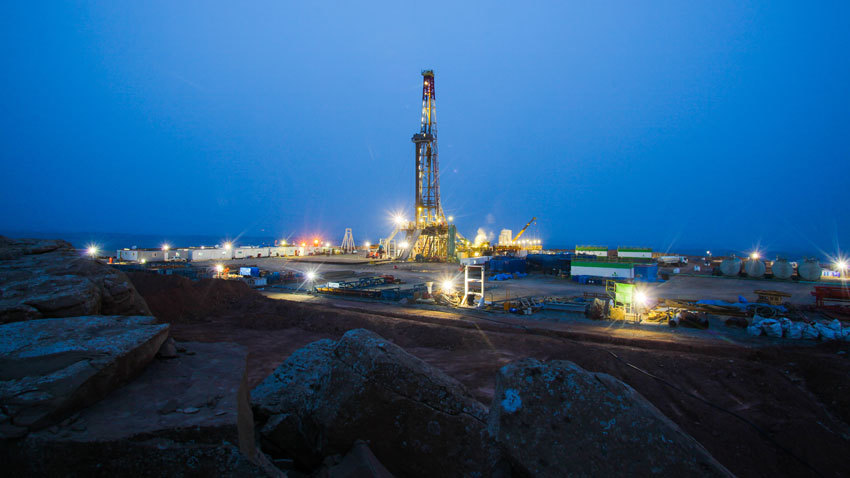
DNO and Genel Energy have cut production estimates and spending this year in Kurdistan, although allowing that work could resume should prices strengthen.
Production at the Tawke licence, operated by DNO, will fall from 115,210 barrels per day in the first quarter to exit the rate at 85,000 bpd, a decline of 26%, if no new wells are drilled. This will provide an average of 100,000 bpd gross over the year. The Tawke field will provide 55% of the output, while Peshkabir will provide the remaining 45%.
DNO said it had cut its fleet in the area to two rigs, from five, saying it believed these were the only active units in Kurdistan. One rig is drilling the Zartik-1 exploration licence, on the Baeshiqa licence, and the other is a workover rig on the Tawke licence.
Should oil prices climb, and export payments move to a more regular schedule, DNO said it could quickly mobilise two rigs at its two producing fields.
DNO has implemented plans to cut capital expenditure to $640 million, a reduction of $350mn. Reduced production from Kurdistan and the North Sea for DNO is expected to be 88,000 barrels of oil equivalent per day, down from 104,800 boepd in 2019.
Of this, 71,000 bpd will come from Kurdistan and 17,000 boepd from the North Sea. DNO’s share of production from the North Sea was 18,640 boepd in the first quarter and it is expected to fall to 17,000 boepd in the second quarter.
“Our cost cutbacks have been thoughtful and deliberate as we moved at warp speed to preserve cash and our balance sheet,” said DNO’s executive chairman Bijan Mossavar-Rahmani. “The resulting reductions in oil production especially in Kurdistan are reversible with a restart of drilling,” he added. “We have not lost reserves but simply parked a portion until the market recovers. And it will.”
One of the factors cited by DNO is that of receiving payments for production from the Kurdistan Regional Government (KRG). A note from Tellimer Research’s Kiti Pantskhava has highlighted that receivables for deliveries between November 2019 and February 2020, when oil prices were around twice current levels, “will not be settled at least until the end of year”
The KRG may accelerate this schedule should oil prices recover to $50 per barrel.
Updated at 11:49 am with background from Tellimer’s Kiti Pantskhava on payments from the KRG.
Recommended for you

